The views expressed in our content reflect individual perspectives and do not represent the authoritative views of the Baha'i Faith.
In this ongoing series, we explore how humanity can solve the harsh economic realities of inequality and injustice in our current world by implementing spiritually-inspired solutions. Today, we turn to Haiti.
I recently spoke with Hugh Locke, co-founder of the Smallholder Farmers Alliance, an organization that has developed a model of farming that benefits small-scale family farmers – and the environment. The SFA organizes and trains farmers to implement techniques which sustainably increase yields by around 40% and household income by 50-100%. Initiated in 2010, the organization’s work has grown in scale and capacity as it builds radical and transformative change in the spiritual and economic lives of agrarian Haitian communities.
The Baha’i teachings ascribe a high status to the practice of agriculture. Baha’u’llah wrote about agriculture as “a vital and important matter” and highly significant in “the advancement of mankind and the reconstruction of the world.” In a tablet to an individual Baha’i in 1912, Abdu’l-Baha wrote: “The question of economics must commence with the farmer and then be extended to the other classes … for the farmer is the first active agent in the body politic.”
RELATED: Agriculture: the Secret Ingredient to Global Peace and Prosperity
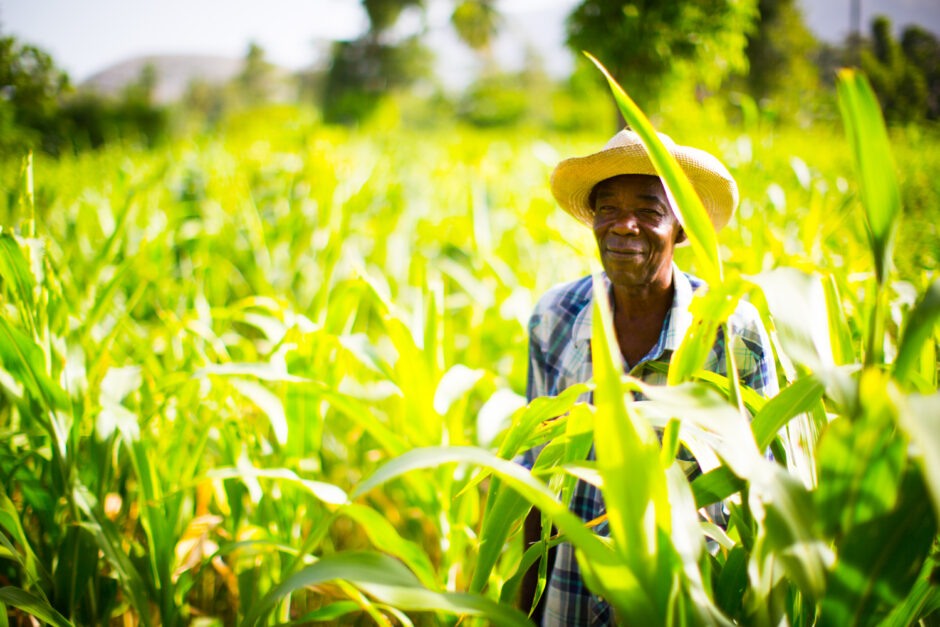
Hugh Locke’s work builds on a legacy of Baha’is engaging in such efforts and creating remarkable progress towards how smallholder farming can be globally transformative. Here Hugh speaks about the significance of the Baha’i writings on this topic, how SFA’s work has led to revolutionary change in Haiti, and the ways in which this model can be relevant globally.
Q: Hugh, the Baha’i Faith puts a notable emphasis on the importance of agriculture in our global economy, and even Abdu’l-Baha did important work with smallholder farmers in Palestine and Jordan. Why is this so?
A: I have always been struck by the Baha’i teachings regarding the transformation the world will undergo at the point at which we finally embrace oneness as an organizing principle. There are some profound implications when you begin to look at the world as a single human family, complete with lots of variations and differences.
One of the implications, for me, is taking into account that there are currently, based on UN estimates, 500 million smallholder farmers throughout the developing world. Then you do a little math and realize this means that one third of the world’s population lives or works on a smallholder farm. And yet that entire swath of humanity has been marginalized and ignored for at least the last half century – so to me, that’s where a fundamental spiritual principle comes in: you can’t just ignore a third of the world because it’s convenient. If the world is inhabited by one human family, and if one third of that family needs help, then you figure out how to support them to be equipped to help themselves.
Q: So how did you start, and how was that inspired by the Baha’i Faith?
A: I had been working in Haiti on a humanitarian project for several years when I met a Haitian agronomist named Timote Georges. From our first meeting we discovered a mutual passion for tree planting. Soon afterwards this also included a mutual interest in providing a different kind of support to smallholder farmers. Both aspirations stemmed from our respective spiritual traditions, he as a Christian and myself as a Baha’i.
Our reaching out to smallholders began on a very practical note. They are the only people in rural Haiti who can plant trees, and so we had to think of a way to engage them. That was really my first encounter with smallholders, and I was so intrigued because just as they are largely invisible to much of the world, they had been invisible to me. Suddenly I’m sitting down and learning about the challenges and dreams of smallholder farmers. And when you begin to view their situation through the lens of faith, you cannot avoid the realization that they deserve a fundamentally different kind of support than they have been getting.
Q: In what way did you start engaging with the farmers, and how did that grow into the Smallholder Farmers Alliance?
A: When we first began, Timote and I asked the farmers what they needed. We realized if we were going to ask them to plant trees, we had to figure out a value proposition because they did not have the bandwidth to plant them for free. When we asked what they needed to improve their farming, there was consensus on three pressing needs: better quality seed for their crops; hand tools to work the land; and agricultural training to improve their yields.
So we said to them, “If we set up a system where you volunteer to grow and plant trees, and if we then give you an agricultural service in exchange that includes those three things – seeds, tools and training – are you in?” Enthusiastically, they said yes. So we started off with a couple hundred, then a thousand, then several thousand. Now it’s grown into quite a large national organization and we have planted more than 9 million trees to date.
Q: The short documentary Kombit focuses on the work of the Smallholder Farmers Alliance, and it emphasizes how your organizing model is traditional to Haiti. How did you draw on local knowledge in your work with smallholder farmers?
A: My mentor was the Baha’i forester and environmentalist Richard St. Barbe Baker, who was a genius in being able to figure out how you introduce tree planting in any given culture. He taught me that to be successful, tree planting has to become part of the cultural DNA of the community in which you’re working. And that starts with respect and understanding of the existing or historic local traditions. You may be bringing a new idea, but you have to adapt it so that it finds its natural cultural home.
That’s what we did with tree planting. We first established a value proposition for farmers, and then began looking at the farming culture. In Haiti, there is one particularly important tradition called “kombit.” This refers to farmers voluntarily working together, usually at planting time and harvest time, to make sure everybody gets their work done. That tradition had eroded over time, because when you have extreme poverty then you don’t have the luxury to volunteer. So we have very consciously reintroduced kombit as a core feature of the Smallholder Farmers Alliance.
Q: That’s so interesting, because community and cooperation are also emphasized strongly in the Baha’i writings. Why is this so important to creating a sustainable model?
A: One of the most important elements is ownership over the process. If you want any new organizational model to have a life of its own and actually transform communities at a fundamental level, then the people involved have to own it. And the only way you transfer ownership is through consultation.
One of the best ways to explain how this works is through a livestock program we have called the Living Gift. Through this program we give a gift of livestock to an entire community in exchange for their tree planting services. The first step is for the whole community to decide who among them actually receives the animals. Typically, this will involve something like 15 goats. The consultation is a very long, drawn-out process to ensure all points of view are taken into account and all voices heard. It concludes with a very formal ceremony where each person chosen to receive a goat signs a document indicating they accept the gift, but will only own the goat after the second offspring has been given to other designated farmers identified by the whole community. Through this process we have also discovered that when everyone is involved in consulting about things that affect them, people begin to emerge as natural leaders.
This has even begun to transform the way these communities resolve conflicts. We have seven branch locations throughout Haiti with a collective total of thirty tree nurseries. Each of those nurseries is where the farmers go to do their volunteer work of growing trees – but it’s also where they go for agricultural training, to receive the seeds and the tools they have earned, and where they come to consult on all sorts of issues. Now these nurseries, not by design in all honesty, have also become de facto community centers. People trust the farm leaders that have emerged because they’ve been part of helping to select them. This has evolved to the point that when there’s a dispute between two families, for example, they will often bring it to the local tree nursery and give authority to the farm leaders to make a decision.
RELATED: Agriculture’s Importance in Rebuilding Our World — with Roy Steiner
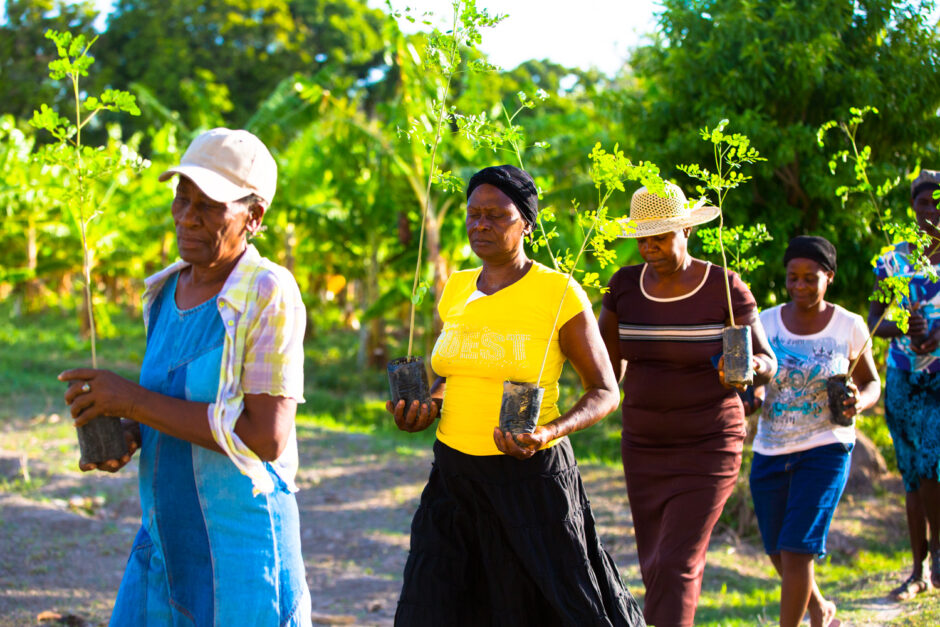
Q: How Incredible! Tell me more about how you have seen communities transformed by the Smallholder Farmers Alliance.
A: Well, a good example involves the earthquake that caused so much damage in southern Haiti in August of 2021. One of our branch locations is in that area and about a thousand SFA farm families were affected. Within a couple of days, they were organized enough to make a formal request for assistance. The farmers had consulted and told us, “we’d really appreciate the following five things.” Timote and I rallied support, got people to make both cash and in-kind donations, and we were able then to provide those items. The farm leaders then helped to organize the community when the requested emergency services arrived so there were no riots or theft, as was the case in many other locations in the general area. When a community has this degree of unity, the power it invests in that local population is quite remarkable.
Q: In your own words, I’ve heard you call this process a “smallholder revolution.” Why choose that language? What is so radical about the work that’s being done in Haiti?
A: Well, if you look at some of the major challenges facing humanity – climate change, food security, gender equality – if there is a way to enlist one third of the world in helping to address those issues, that begins to establish a massive scale of potential engagement. This, in and of itself, is quite radical. But to do this there needs to be a new way of looking at smallholder farmers, because historically they’ve been seen as an outright obstacle to progress.
The conventional thinking is “They’re not very efficient, and anyway smallholder farmers are going to go away because eventually we’ll all be depending entirely on industrial farming.” Well, that hasn’t happened and there are still 2.5 billion of them left and so we need to figure out a way to work with them. In order to do that, I call it a revolution – because in any given system when the core tenets of how a society functions have to be revisited without restraint, then the reordering can occur on a scale that constitutes revolution. I think that is what’s needed in order to work with smallholder farmers, and I think the Baha’i writings allude to that.
Q: It’s clear from the way you’re looking at this that it’s a model that could be replicated globally. How can we work together to make that a reality?
A: I believe that the challenge of helping smallholder farmers to realize their full potential should be undertaken at a global scale. There are many examples where national and regional groups of non-governmental organizations (NGOs) focused on smallholders are beginning to find a voice. But they have yet to come together at scale. And when they do, there is a need to ensure smallholders have a seat at the table for international trade negotiations, discussions about food security, strategies for global climate change mitigation and so on. I believe this process also needs to be informed by a broader spiritual perspective. I’m not suggesting it has to be exclusively a Baha’i initiative, but I feel it should be something that starts with a high level of respect for individual smallholders, their families and their communities.
Q: Thank you, Hugh, for these fascinating insights.
Hugh Locke, Timote Georges, and the Smallholder Farmers Alliance have built that level of respect for farmers and upholding local traditions in creating a model for community-based change. These guiding principles are surely replicable, whether by national NGO’s like the Baha’i-inspired Smallholders Farmers Alliance, or locally-organized community gardens. This is just the beginning of a radical global change in food production, especially as we look to the future. Hugh Locke notes the increasing attention to regenerative farming as being a growing force where consumers can further support smallholders. Hugh himself is deeply involved in introducing the concept and practices of regenerative farming – with its holistic approach and focus on broader social and environmental impacts – in Haiti, and now expanding to Africa, Asia and other parts of South America. Hugh is also currently in the process of creating a new digital app and platform for smallholder farmers that will allow them to use and sell their data as a new farm product.
These kinds of approaches, based on the spiritual principles of the Baha’i Faith, can lead us to entirely new ways of understanding and renewing our economies.


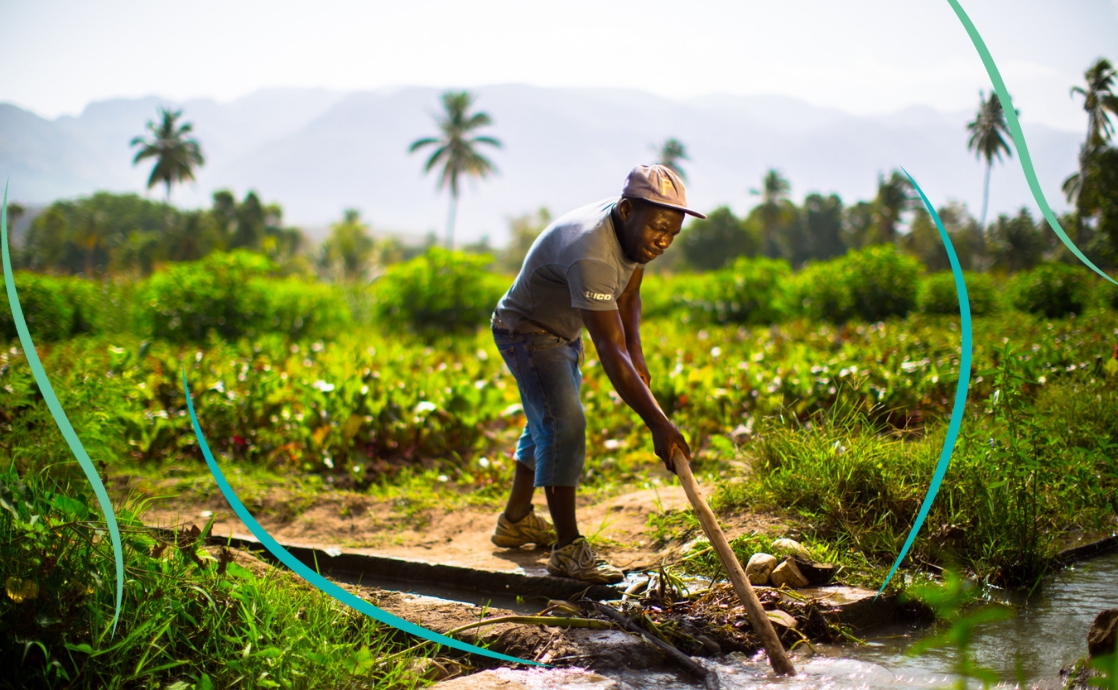



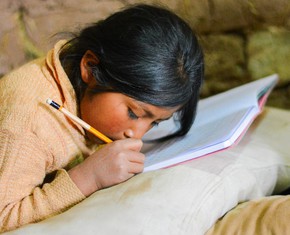
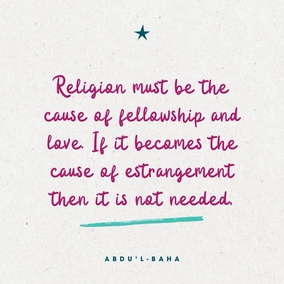

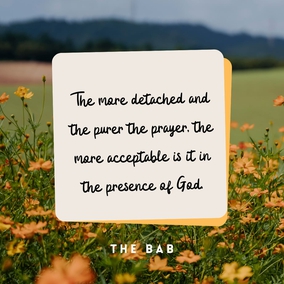
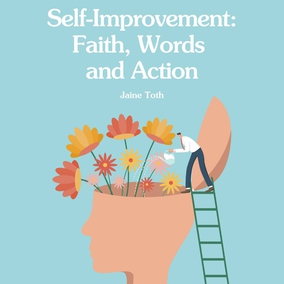


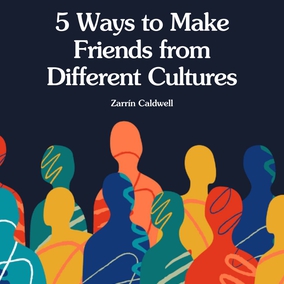
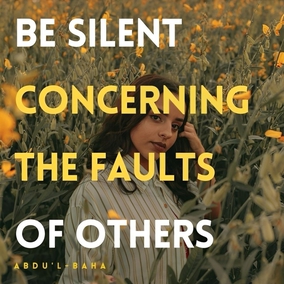

Comments
Sign in or create an account
Continue with Googleor